» Day 2-Part 1: On the Road to Liverpool and an Introduction to the National Museums Liverpool (NML)
This is the third blog post in a series written by Georgette Mayo, Avery Research Center’s Processing Archivist, reflecting on her trip to London and Liverpool in October 2024.
Our delegation awoke bright and early to travel 3.5 hours via van to Liverpool.
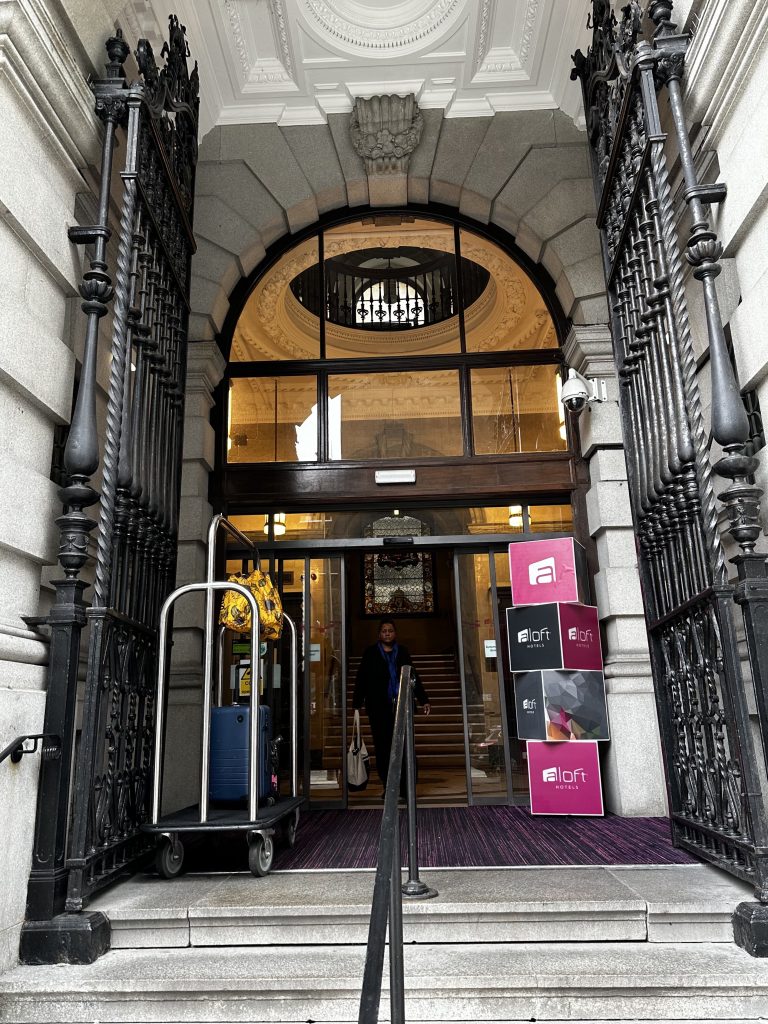
We arrived at our first stop, the Aloft Liverpool Hotel, to drop off our luggage. This hotel is historically significant. It was originally occupied by the former Royal Insurance Company, established in 1845. The original building was erected in 1849. The building was retrofitted to become the Aloft in 2014.
After a quick turnaround, our delegation was shuttled to the Museum of Liverpool (one of seven in the National Museums Liverpool-NML), the hosts for this leg of our trip. Upon introductions, we ate lunch in their conference room overlooking the Royal Albert Dock. We listened to a presentation by Michelle Charters, head of the International Slavery Museum (ISM) and trustee of NML.
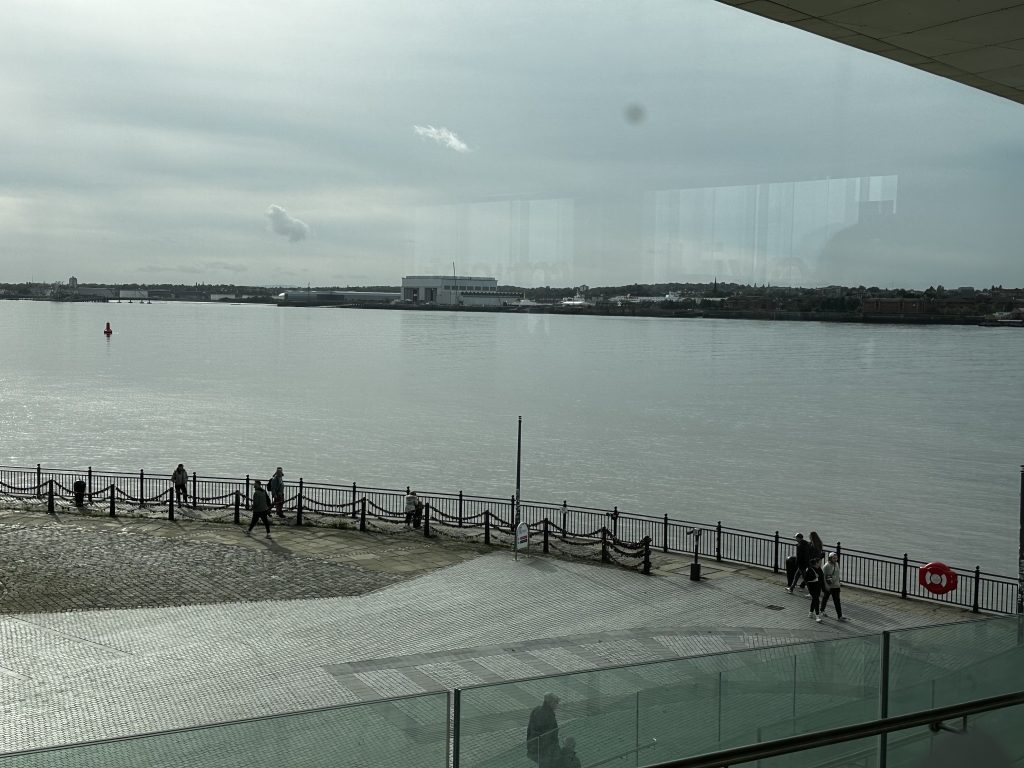
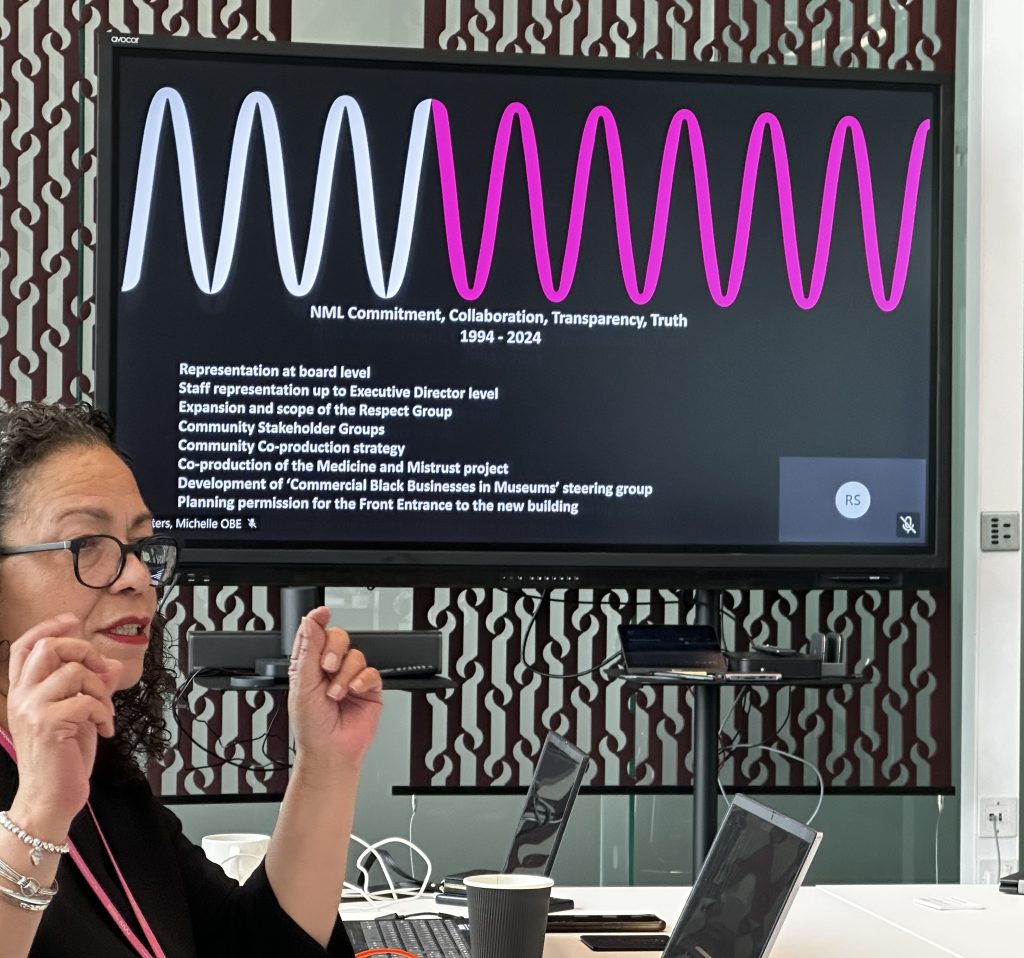
Charters provided an overview of the International Slavery Museum, the only museum in the world dedicated to telling the story of the transatlantic slave trade.
This museum, the Mersey Maritime Museum, the Canning Dock, and the various historic dockside buildings will soon undergo multiple forms of renovation. ISM will have the most extensive “redesign and redevelopment” as it will become a separate structure, adjoining the Merseyside Maritime Museum by an enclosed bridge (more information will be found in a subsequent blog entry).
The ISM began with humble beginnings in 1994 as a Transatlantic Slavery Gallery in the Merseyside Maritime Museum’s basement. In 1999, the Liverpool City Council unanimously passed a motion apologizing for the city’s role in the transatlantic slave trade, and the official museum opened in 2007. The NML established the ISM on the third floor of the Maritime Museum, where it remains today.
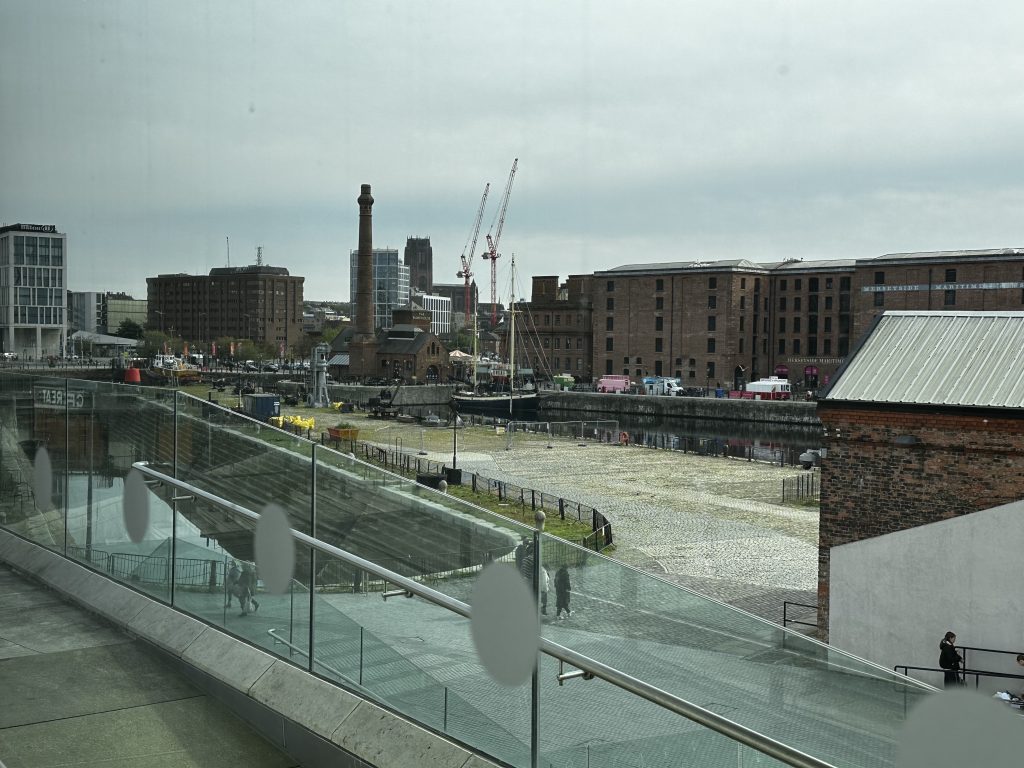
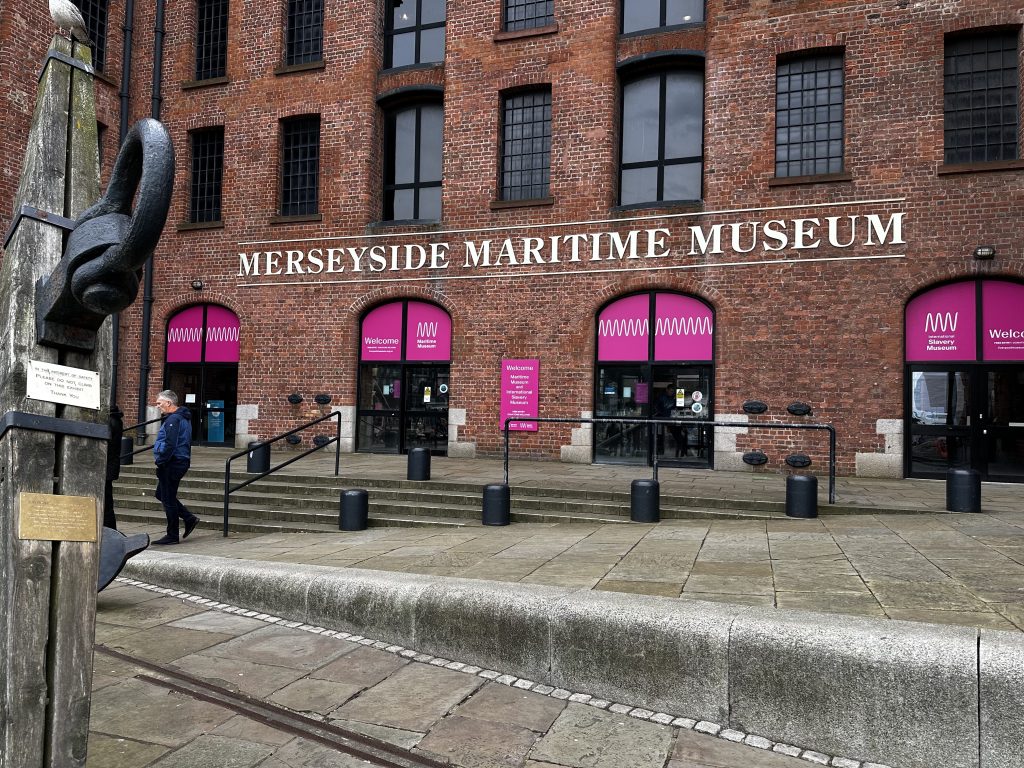
Charters emphasized the importance and significance of the ISM finally having its own museum. She stressed the NML’s support and upcoming renovation are guided by the NML’s statement of purpose of “Commitment, Collaboration, Transparency, Truth.” Numerous institutional, academic, and community partnerships and current projects and programs support the ISM and its endeavors. The Black community’s voice, buy-in, and support are vital for success. Read more about Charters’s determination and passion to bring the ISM to fruition in her essay, “From the Basement to the Board.”
Expanding the discussion on partnerships, we heard from Claire Benjamin, head of Learning and Participation for the Centre for Teaching Black History, Francoise McClafferty, head of Partnerships and Strategic Relations representing the Transatlantic Slavery and Legacies in Museums Forum, and Rebecca Loy, PhD, Diversity and Inclusion Partner who informed us on the “Medicine and Mistrust Project.” These projects support the mission of the ISM, making it relevant in today’s society.
To build support, the NML and ISM are actively seeking international partnerships. Laura Pye, director of the National Museums Liverpool, was preparing to visit New York City museums in October 2024. As of this writing, ISM’s sole partner in the United States is the Smithsonian’s National Museum of African American History & Culture (NMAAHC) through the Center for the Study of Global Slavery. In December 2024, their first co-curatorial exhibition done by The Global Curatorial team, titled In Slavery’s Wake: Making Black Freedom in the World, will be opening at NMAAHC.
As our second day in Liverpool was event filled, it will be continued in Day 2: Parts 2 and 3.
